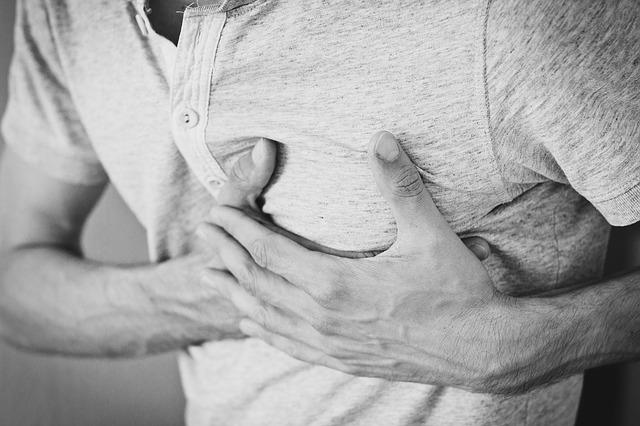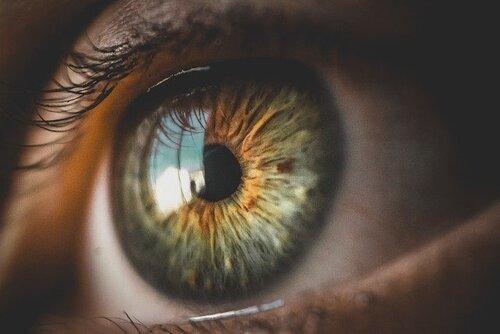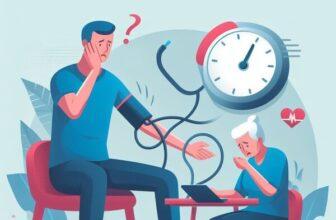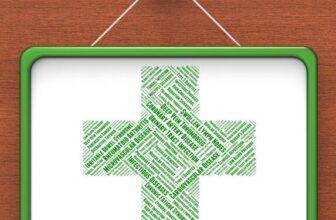
(Note: Some of the links in this post are affiliate links, and we will be compensated when you make a purchase by clicking through our links at no additional cost to you.)
What Happens If High Blood Pressure Goes Untreated?
In the early stages, high blood pressure may cause few problems. BUT over the years, uncontrolled high blood pressure can cause a lot of problems to the heart, blood vessels, brain, eyes, kidneys and other organs. High blood pressure is dangerous because it makes the heart work too hard. It also makes the walls of the arteries hard.
High blood pressure increases the risk for heart disease and stroke, the first- and fifth-leading causes of death for Americans. Together with cigarette smoking, high cholesterol and diabetes mellitus, it constitutes the so-called cardiovascular risk profile.
When high blood pressure goes untreated, it can cause:
- The heart to get larger, which may lead to heart failure.
- Small bulges (aneurysms) to form in blood vessels. Common locations are the main artery from the heart (aorta), arteries in the brain, legs, and intestines, and the artery leading to the spleen.
- Blood vessels in the kidney to narrow, which may cause kidney failure.
- Arteries throughout the body to “harden” faster, especially those in the heart, brain, kidneys, and legs. This can cause a heart attack, stroke, kidney failure, or amputation of part of the leg.
- Blood vessels in the eyes to burst or bleed, which may cause vision changes and can result in blindness.
Effects of High Blood Pressure on Your Body:
Brain:
High blood pressure is the most important risk factor for stroke. Very high pressure can cause a break in a weakened blood vessel, which then bleeds in the brain. This can cause a haemorragic stroke. If a blood clot blocks one of the narrowed arteries, it can cause a thrombotic stroke. In addition, when high blood pressure damages the blood vessels leading to the brain, this can affect the blood supply to the brain. This can lead to to a type of dementia called vascular dementia.
Eyes:
High blood pressure can eventually cause blood vessels in the eye to burst or bleed. Vision may become blurred or otherwise impaired and can result in blindness. Hypertensive retinopathy is damage to the retina caused by high blood pressure. Your health care provider can see narrowing of blood vessels and excess fluid oozing from blood vessels with the ophthalmoscope. The degree of retina damage (retinopathy) is graded on a scale of I to IV. At grade I, no symptoms may be present. Grade IV hypertensive retinopathy includes swelling of the optic nerve and visual center of the retina (macula), which can cause decreased vision.

Arteries:
As people get older, arteries throughout the body “harden,” especially those in the heart, brain, and kidneys. High blood pressure is associated with these “stiffer” arteries (arteriosclerosis). This, in turn, causes the heart and kidneys to work harder.
Kidneys:
The kidneys act as filters to rid the body of wastes. Over time, high blood pressure can narrow and thicken the blood vessels of the kidneys. This may result the kidneys filter less fluid, and waste builds up in the blood. The kidneys may fail altogether. When this happens, medical treatment (dialysis) or a kidney transplant may be needed.
Heart:
High blood pressure is a major risk factor for heart attack. The arteries bring oxygen-carrying blood to the heart muscle. If the heart cannot get enough oxygen, chest pain, also known as “angina,” can occur. If the flow of blood is blocked, a heart attack results. High blood pressure is also the number one risk factor for congestive heart failure (CHF). CHF is a serious condition in which the heart is unable to pump enough blood to supply the body’s needs. Lastly, high blood pressure or hypertension can lead to an enlarged heart muscle (due to the heart having to work harder than normal) and this, in conjunction with arteriosclerosis leads to schaemic heart disease.
Penis:
High blood pressure can damage artery walls, causing them to harden and narrow, and restricting blood flow to the penis, leading to problems getting or keeping an erection (erectile dysfunction). Studies have shown that men with hypertension are almost twice as likely to have impaired penile blood flow and erectile dysfunction compared to men with normal blood pressure.
Vagina:
High blood pressure damages blood vessels and can reduce blood flow to the vagina and may lower levels of nitric oxide, a chemical that helps smooth muscles relax. In some women, this may cause lowered sex drive or arousal, difficulty achieving orgasm and / or vaginal dryness.
>>> Discover The Top Blood Pressure Monitors
High Blood Pressure and Cardiovascular Disease (CVD)
High blood pressure or hypertension affects approximately 116 million individuals in the United States and approximately 1 billion worldwide. As the population ages, the prevalence of hypertension will increase even further unless broad and effective preventive measures are implemented. A study from the Framingham Heart Study suggest that individuals who are normotensive or have normal blood pressure at age 55 have a 90 percent lifetime risk for developing hypertension. The relationship between blood pressure and risk of cardiovascular disease (CVD) events is continuous, consistent, and independent of other risk factors. The higher the blood pressure, the greater is the chance of heart attack, heart failure, stroke, and kidney disease. For individuals 40–70 years of age, each increment of 20 mmHg in systolic blood pressure (SBP) or 10 mmHg in diastolic blood pressure (DBP) doubles the risk of CVD across the entire blood pressure range from 115/75 to 185/115 mmHg.
The classification “prehypertension” recognizes this relationship and signals the need for increased education of health care professionals and the public to reduce blood pressure levels and prevent the development of hypertension in the general population. Hypertension prevention strategies are available to achieve this goal.
Benefits of Lowering Blood Pressure
In clinical trials, antihypertensive therapy has been associated with reductions in stroke incidence averaging 35–40 percent; myocardial infarction, 20–25 percent; and heart failure, more than 50 percent. It is estimated that in patients with stage 1 hypertension (SBP 140–159 mmHg and/or DBP 90–99 mmHg) and additional cardiovascular risk factors, achieving a sustained 12 mmHg reduction in SBP over 10 years will prevent 1 death for every 11 patients treated. In the presence of CVD or target organ damage, only 9 patients would require such blood pressure reduction to prevent a death.
The only true way of ascertaining whether you have high blood pressure or not is by having it checked or monitored regularly using a home blood pressure monitor and tracking it with a blood pressure log. This is a painless procedure, and every adult should have their blood pressure checked regularly since your blood pressure can change over time. This way you are more likely to catch a change before it becomes dangerous. Ask your health care provider how often you need to check it.
>>> Discover The Most Accurate Blood Pressure Monitor For Home Use







